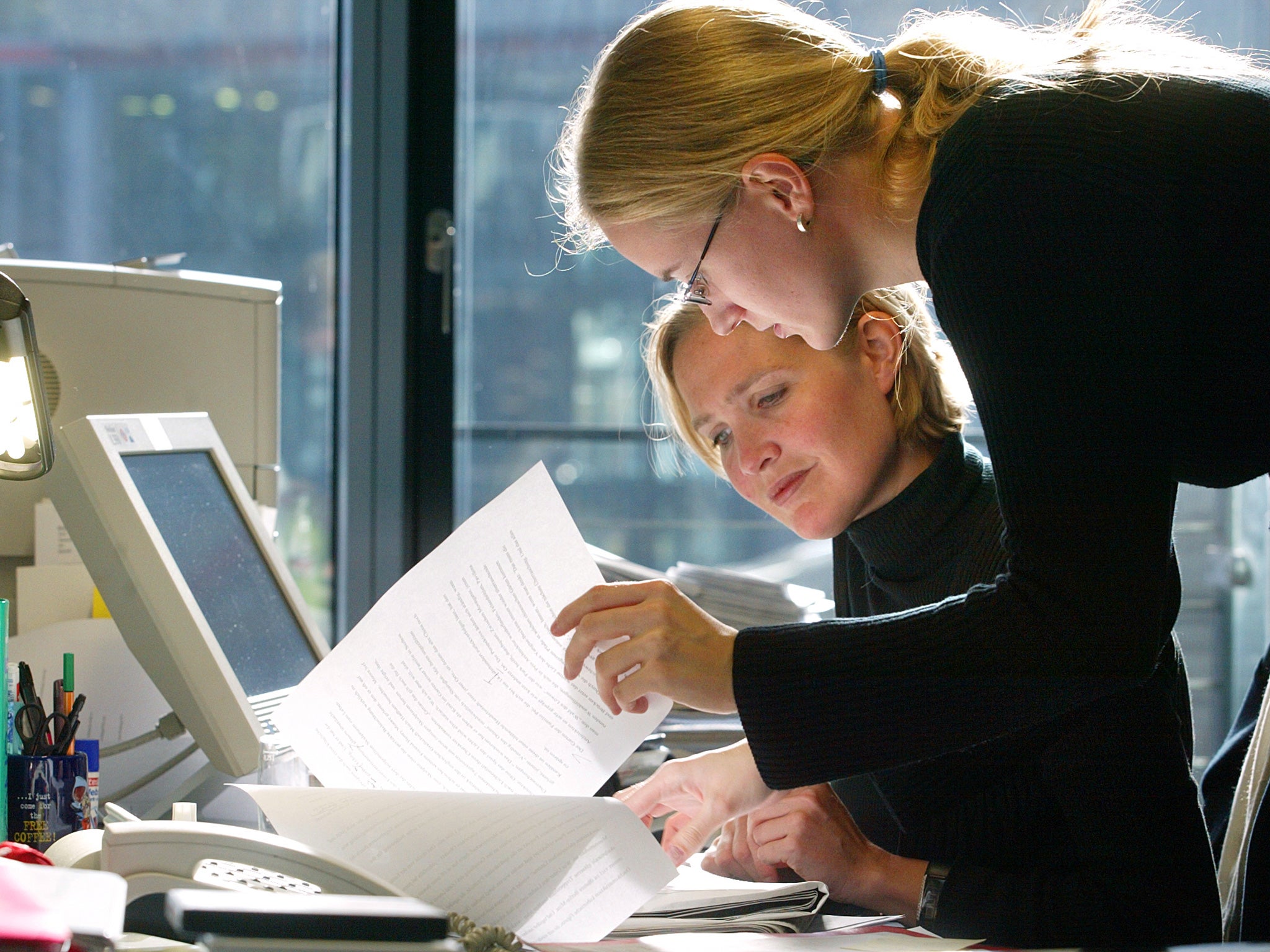Gender pay gap reversed for women in their twenties but remains rife among over thirties
Research highlights that there is still a way to go before genuine parity

The gender pay gap has been reversed for women in their twenties but the salaries of those in their thirties and above remain dwarfed by their male counterparts, new analysis has found.
Using data from the Office for National Statistics, the Press Association analysed the comparative earnings of men and women from 2006 to 2013.
A woman aged 22 at the beginning of that period and 29 at the end of it typically earned £1,111 more over the duration than men in the same age range.
But while women in their twenties came out on top in the earning stakes, the story was vastly different for workers in their thirties, researchers found.
A man turning 30 in 2006 would have brought in on average £8,775 more in the period to 2013 than a woman of the same age.
Ann Pickering, HR director at O2, said the research highlighted that there is still a long way to go before genuine parity between women and men is achieved.
"While women are earning slightly more than men in their twenties, they are still overtaken by men later in life – and the reason is simple. Women are playing catch-up when it comes to reaching senior well-paid positions," she said.
"If women are not in the same roles as men, how can they be on the same wage?”
Sam Smethers, chief executive of the Fawcett Society, which campaigns for gender equality, suggested more senior roles would go to women if they were offered on a part-time or job-share basis.
"Unless there is good reason not to do so, that should be a company's default thinking," she said.
"Sadly the opposite is true: once you get to certain level it's a full-time role, which excludes many women from roles they would be perfectly capable of doing."
The research also found that female workers in their teens have seen their income plummet 33 times faster than their male counterparts.
The average full-time salary for 16- to 17-year-old girls fell by over a quarter (26.4 per cent) from £9,750 in 2006 to just £7,176 in 2013.
Over the same period, 16- to 17-year-old boys saw their income dip only marginally from £8,639 to £8,561.
Ms Smethers described the drop in income for young female workers as a "worrying” trend.
Subscribe to Independent Premium to bookmark this article
Want to bookmark your favourite articles and stories to read or reference later? Start your Independent Premium subscription today.

Join our commenting forum
Join thought-provoking conversations, follow other Independent readers and see their replies